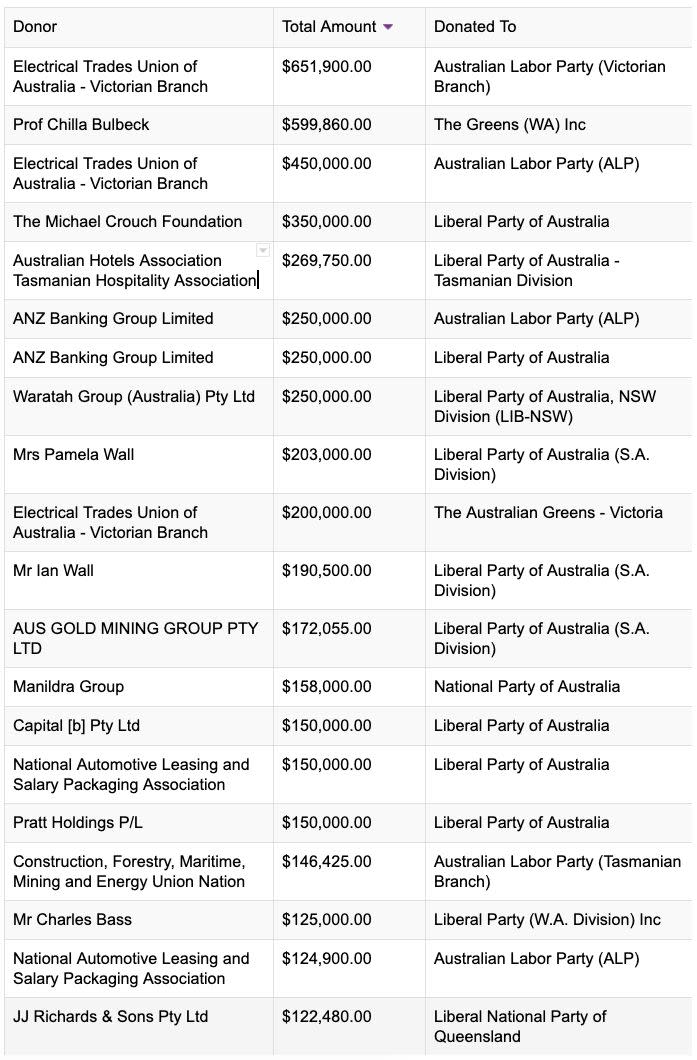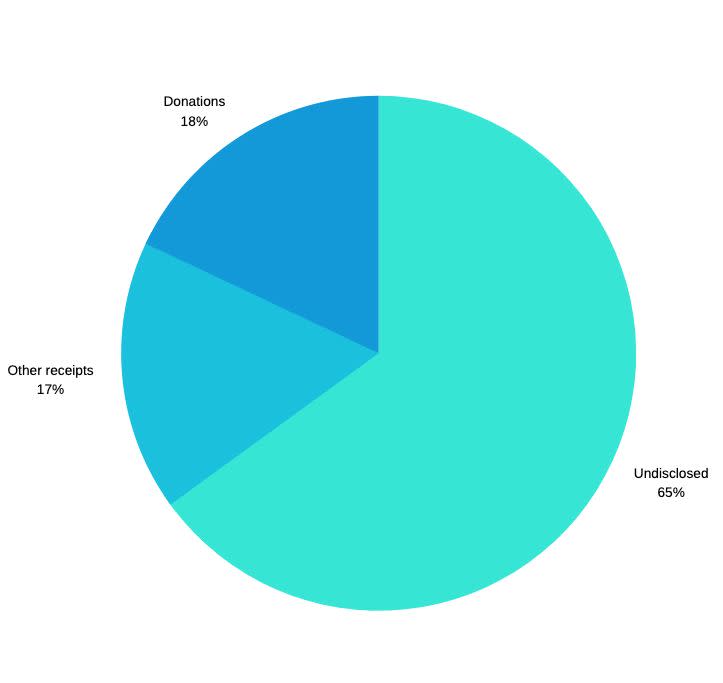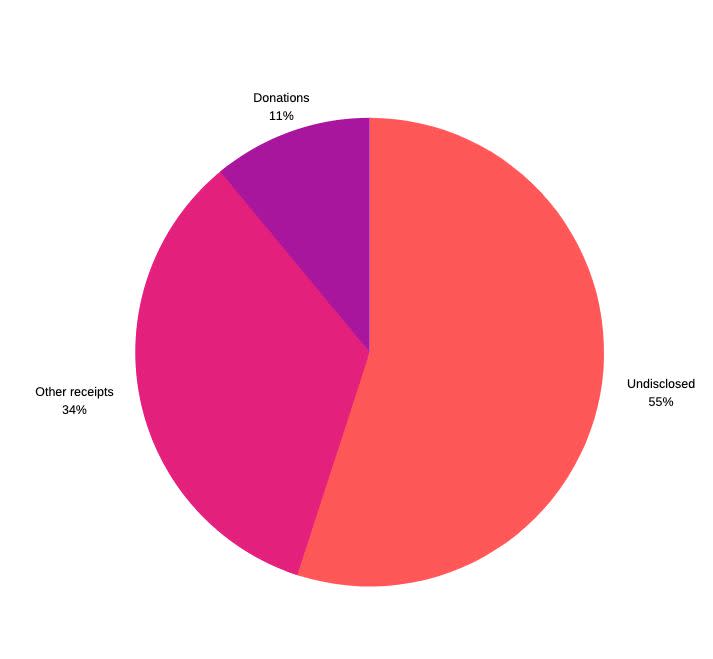Who are Australia’s biggest political donors?

Political campaigns have taken over Australia’s airways, billboards, newspapers and radio stations.
Flyers have been printed, and shirts too.
But how do Australia’s political parties afford to do this?
Political funding in Australia comes from a range of sources, including public funding and political donations.
To reduce the impact of private money on elections and policy, political parties in Australia are publicly funded.
But while individual people, organisations and companies can’t fund a political party, they can donate. And some of those donations are huge.
According to the Australian Electoral Commission, the largest single political donor in 2017-18 was the Victorian branch of the Electrical Trades Union of Australia which donated a whopping $651,900 to the Victorian branch of the Australian Labor Party.
The Victorian branch of the Electrical Trades Union of Australia also donated $450,000 to the national Australian Labor Party.
This donation, however, was outshone by a massive $599,860 donation from Professor Chilla Bulbeck to the Western Australian branch of The Greens. Professor Bulbeck, the convener of the WA Greens, donated the money from a hefty inheritance she received from her father.
The Michael Crouch Foundation donated $350,000 to the Liberal Party of Australia.
These were Australia’s 20 largest political donations in 2017-18

Political parties are not allowed to receive donations of more than $1,000 from foreign donors, and political parties at the federal level must report donations of more than $13,200.
Individuals making political donations can claim a tax deduction of up to $1,500 in any given income year, as long as they are not donating in a political capacity.
But there’s more to the story
According to Lindy Edwards, a senior lecturer in politics at the University of New South Wales, there’s much more to the donation story.
In a piece for The Conversation, Edwards noted that in the last 10 years, the major parties have only disclosed 10-20 per cent of their incomes as donations.
It looks like this:
Liberal Party private income, 2016-17

Over this period, total private income was $43.3 million.
Labor Party private income, 2016-17

And for the Labor Party, total private income over this period was $38.9 million.
“Political parties in Australia at the federal level only have to disclose payments of more than A$13,200. They are requested – but not required – to distinguish between “donations” and “other receipts”,” Edwards explained.
“There are no caps on how much people can give, or who can give. And the disclosures are only released annually, in February each year, with no more than a name and address attached.”
Related story: Watch out: The Aussie economy is still 'in the red'
Related story: What a Liberal or Labor government would mean for your taxes
Related story: The winners and losers from negative gearing changes
It means the value of political donations are often much higher than those recorded, as they’re classed as “other receipts,” which also classes proceeds from property sales, union fees and share dividends.
In fact, a 2008 study published in the Australian Journal of Political Science suggested all “other receipts” should be considered donations.
Political parties may also class tickets from fundraising dinners as “other receipts”, further skewing the reports.
“The annual ... festival of lampooning the largest visible donor lulls Australians into a false sense of security that there is a functioning political donations disclosure regime in place,” Edwards warned.
“Few realise how ineffective our political donations disclosure regime is, and how badly it is in need of reform.”
Make your money work with Yahoo Finance’s daily newsletter. Sign up here and stay on top of the latest money, news and tech news.

 Yahoo Finance
Yahoo Finance 
